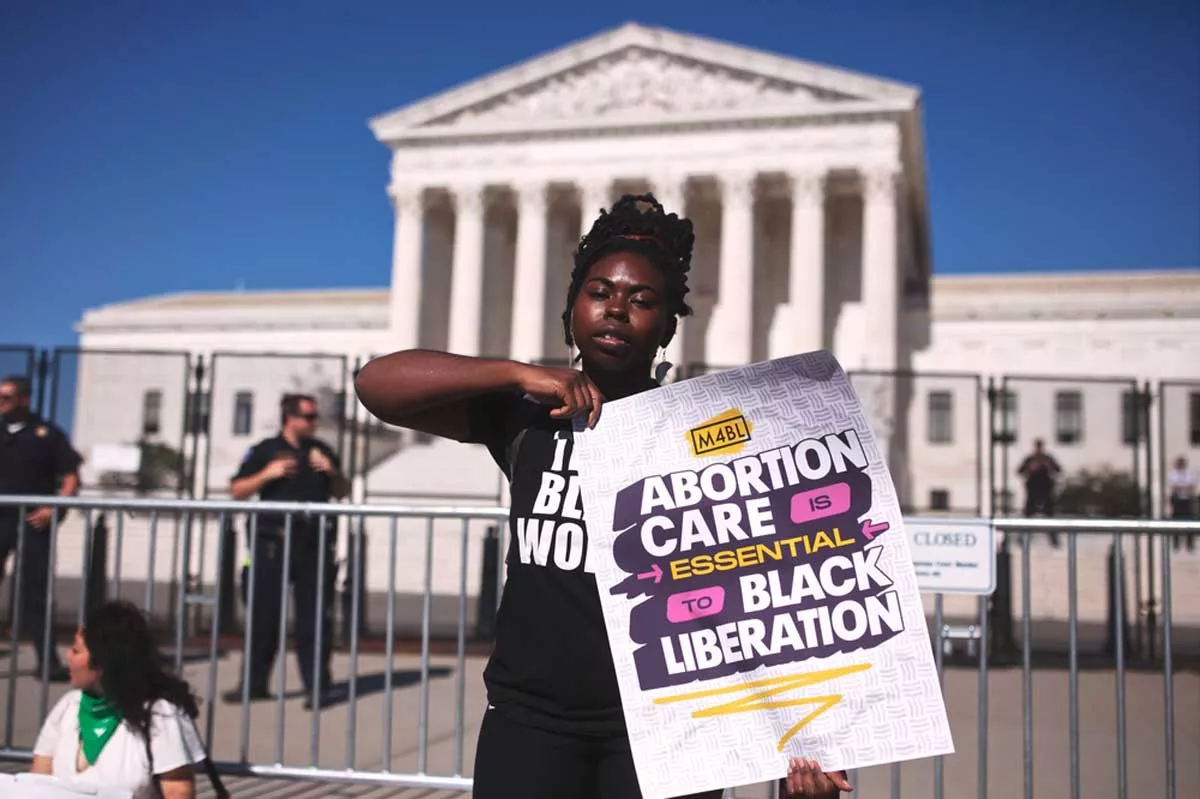Historically and currently, the accessibility of sexual and reproductive health care (SRH) is embedded in a fabric of colonialism, racial capitalism, carcerality, white supremacy, and cis-heteropatriarchy. As a growing community organizer who aims to center abolition and reproductive justice through the praxis of Black Queer Feminist Theory and as a family medicine physician who provides life-saving, full-spectrum reproductive health care, I have seen how these intersecting oppressive systems limit actual “choice” and access to bodily and reproductive autonomy for patients, particularly for Black, Indigenous, and other people of color. September 30 marks the anniversary of one of these tools of oppression, the Hyde Amendment, a federal bill-rider that prohibits the use of federal funding such as Medicaid and others for abortion care with rare exceptions. This means that patients who rely on federal funding for their health care access and may already be impacted by poverty are then personally responsible for gathering the funds needed to cover abortion care. This amendment and other funding restrictions disproportionately impact reproductive health care access and freedom of the most marginalized patients by creating a cost barrier to accessing care.
When we look at the specific impact that Hyde has on people relying on Medicaid, the Hyde Amendment currently impacts 32 states and the District of Columbia including Michigan where I currently practice with 17 states providing Medicaid coverage for abortion care. In 2022, Medicaid covered 19% of women aged 19-64, with these women disproportionately experiencing poverty and being racially marginalized due to the intersecting systemic inequities of racism, capitalism, and sexism. A majority of patients who access abortions are low-income. Hyde’s reach is unfortunately felt even further for anyone else relying on federal funds for health care including folks who are incarcerated, government workers, active military, veterans, and dependents, people in the Peace Corps, and people who rely on Indian Health Services for care.
With the Hyde Amendment prohibiting Medicaid funding for abortion, low-income patients and patients of color seeking abortion care may be economically coerced to continue a pregnancy due to the cost of an abortion. In 2021, the average out-of-pocket cost of an abortion alone was greater than $500, with higher costs in later trimesters and for procedural abortions compared to medication abortions. As a provider of reproductive health care who cares for many patients reliant on Medicaid for their health insurance, I have personally witnessed how the cost of care dictates what services are accessible to marginalized patients and how the lack of coverage restricts their ability to make decisions about their own bodies. I have listened when a patient is negotiating whether to use their savings for abortion care or to meet their basic needs such as rent, food, electricity, etc. I have had patients decide to continue with an unwanted pregnancy or delay their care due to the overwhelming cost of accessing an abortion, often even with the assistance of abortion funds. Access to abortion care should not be a function of the state a patient resides in or related to a patient’s financial means to cover the service. A patient’s bodily autonomy should be a basic human right in all aspects of healthcare including reproductive health care. The Hyde Amendment is economically coercive, restrictive, ableist, racist, and harmful to the health and wellbeing of patients and communities by disproportionately rendering care inaccessible to those who are often already the most marginalized.
I entered health care with a passion for caring for those at the margins of oppression, and with a belief that health care can serve as a tool for advancing liberation, justice, abolition, and autonomy. The Hyde Amendment has denied reproductive freedom and access, particularly to low-income and patients of color who are already facing tremendous social and economic injustice. I have learned that being a health care provider is not only a matter of being able to provide competent, compassionate medical care; it also requires abolition of the systems of oppression that disproportionately harm marginalized patients and communities and transforming the social and economic conditions that limit true reproductive freedom. Centering reproductive justice in the provision of reproductive health care requires that we dismantle the systems of structural harm and violence such as the Hyde Amendment that selectively afford choice and autonomy to our patients and communities while simultaneously reimaging care and systems that are affirming, nurturing, and liberatory. As a physician with hopes for a better future for patients, I call on Congress to repeal the Hyde Amendment to take real steps towards a reality where everyone can afford the abortion care they need.
Dr. Meera is a physician in Michigan and a Fellow with Physicians for Reproductive Health.


